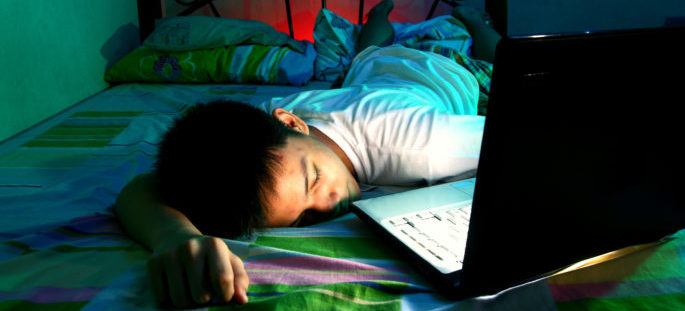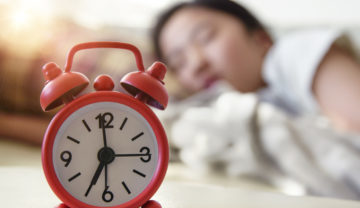Getting Enough Sleep
When you’re a teenager, it can be really hard to get as much sleep as you need. Early school start times, homework, after-school jobs, activities and sports can leave you nodding off in class. Research shows that most teens don’t get enough sleep on a daily basis. The average teen needs 8 to 10 hours of sleep every night! Did you know that lack of sleep can impair your judgment as much as being drunk? Why is it so difficult to get enough sleep, and what can you do about it?
Your Sleep-Wake Cycle
Most living things, including all humans, have “circadian rhythms.” These are changes in your body, mind and behavior that follow a roughly 24-hour cycle. Circadian rhythms respond to light and darkness in the environment. When children reach puberty, their circadian rhythm shifts and the time they feel the need to go to sleep can move by as much as two hours. Before puberty, your body made you sleepy around 8 or 9 p.m. After puberty, you’re not sleepy until 10 or 11 p.m. If you go to bed at 11 and sleep 9 hours, you would get up at 8 a.m.—after school starts in most cities! So you get up at 6 or 7, and you’re worn out by the end of the week.
Too Many Distractions
Homework, a job, sports teams, clubs and other activities can make it hard to get to bed on time for a full night of sleep. Among the worst distractions are smartphones, computers, tablets and TVs. Besides stimulating you with their content (texts, TV shows, videos, etc.), electronics emit a blue light that keeps you awake. Your friends may add to your wakefulness by wanting you to hang out with them late in the evening or sending texts when you need to go to sleep. Drinking, smoking and using drugs also disrupt sleep.
Emotional Ups and Downs
If your family situation is distressing, you may have more trouble sleeping. Mood swings and emotional ups and downs are common in teens, and can result in sleep issues. If you are depressed or hyperactive your sleep may suffer, and lack of sleep can make you feel worse.
Why You Need Sleep
Many people think that sleep is something they can do without. But not getting enough sleep does more than just make you sleepy when you need to be alert. Lack of sleep can cause feelings of depression, make you grouchy and irritable, and keep you from thinking clearly and performing well in school or on the job. Adolescence is hard enough to deal with, as you face changes in your body, emotions, feelings and moods, as well as increasing responsibilities at school and at home. Not sleeping enough makes it harder to cope.
Become a Sleep Champion
You don’t have to be Sleeping Beauty to get the sleep you need. Here are some tips to help you get a good night’s rest. Some of the highlights:
- Turn off electronics at least 30 minutes before bed. If you just can’t get off your devices, adjust your phone or computer so its light is warmer.
- Make a soothing nighttime routine. Go to bed at the same time, and do something quiet and relaxing in the hour before you need to go to sleep. Don’t do demanding homework right before bed.
- No caffeine for at least 6 hours before bedtime. Be aware of how your body reacts to caffeine. You may need to cut off caffeinated coffee, soda or tea even earlier.
- Avoid smoking and drinking. Both of those disturb sleep.
- Regular exercise will help you be physically tired and sleep better.
And one final tip from the Sleep Center at UCLA: If you sleep in on the weekend, don’t get up more than 2 hours later than you normally do during the week. Sleeping in longer will disrupt your body clock, and make it even harder to get up when the weekend is over.
This information is not intended to provide medical advice, professional diagnosis, opinion, treatment or services, only general information for education purposes only.


